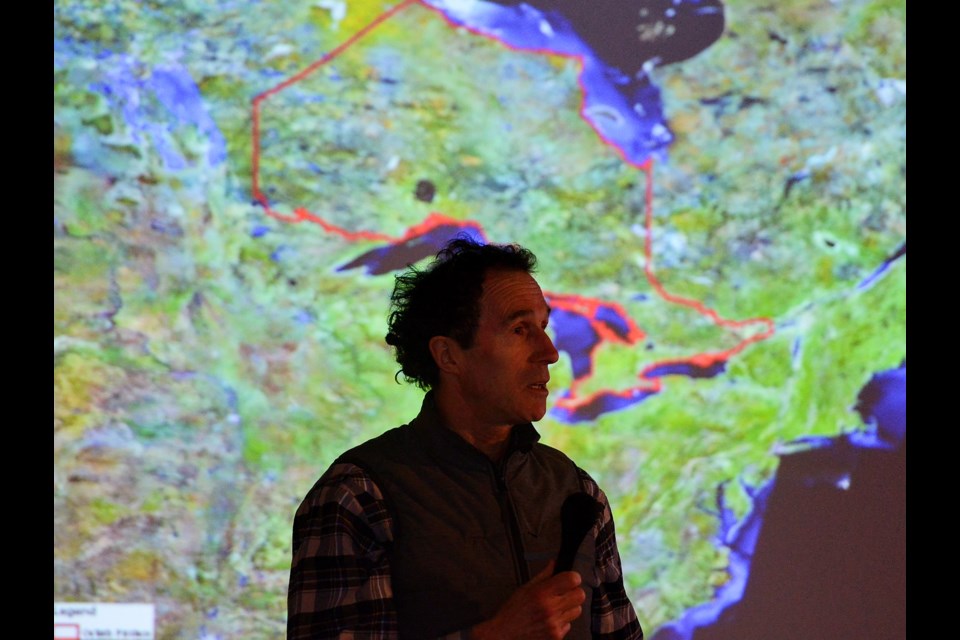A battle for the Greenbelt may have been won, but the war rages on.
The Protect Our Greenbelt - From Bill 66 event Saturday drew around 100 people to The Arboretum Centre to hear from Victor Doyle, a 30-year civil servant who played a significant role in designing the protected area, and Guelph MPP and provincial Green Party leader Mike Schreiner.
“When we pave the landscape, that’s forever … we can’t turn back time when we pave the landscape,” said the man who worked in provincial municipal affairs and might know more about the Greenbelt than any one person alive.
“It’s the biggest Greenbelt in the world and the most strongly protected,” said Doyle of the swath of land that starts in Niagara and forms a protective buffer for land and water outside the Greater Toronto Area.
The province has announced that it will be cancelling a section of Bill 66, the so-called open for business legislation, following outcry from the public and many municipalities who felt the section posed as a threat not only to the Greenbelt, but to water supplies and public health in general.
The section allowed businesses to circumvent many protective pieces of legislation.
But that doesn’t mean the Greenbelt is safe.
“There’s nothing wrong with red tape,” Doyle said. “But removing but removing red tape that removes many environmental protections makes no sense.”
An estimated 40,000 to 50,000 housing starts in Ontario a year, Doyle said, and Ontario is losing 32,000 acres of land a year to development.
“I would argue we need limits to growth,” he said.
“A lot of growth is leapfrogging the greenbelt. A lot of people aren’t really recognizing that,” Doye said.
Bay Street, big banks and pension funds have a great deal of interest in this, Doyle said, from an investment standpoint.
Doyle rejected the notion that there is not enough land available for development.
“This is simply not true. It’s not accurate and it’s self serving for their own purposes,” Doyle said.
Saturday’s event was hosted by the North Dufferin Agricultural and Community Taskforce, a citizen’s group originally formed in 2009 that successfully battled plans to put a mega-quarry in their townships.
Schreiner said the repealing of a key section of Bill 66 shows that public pressure works.
“Government will listen provided the pressure is ramped up,” he said.
He said the mobilization against Bill 66 over the last two months “was inspiring.”
“They (the province) knew they were going to have to back off, otherwise they were going to have a problem on their hands they did not want to have,” Schreiner said.
He said “bad environmental policies are bad business policies.”
“A country that cannot feed itself is as vulnerable as a country that cannot defend itself,” Schrenier said.
